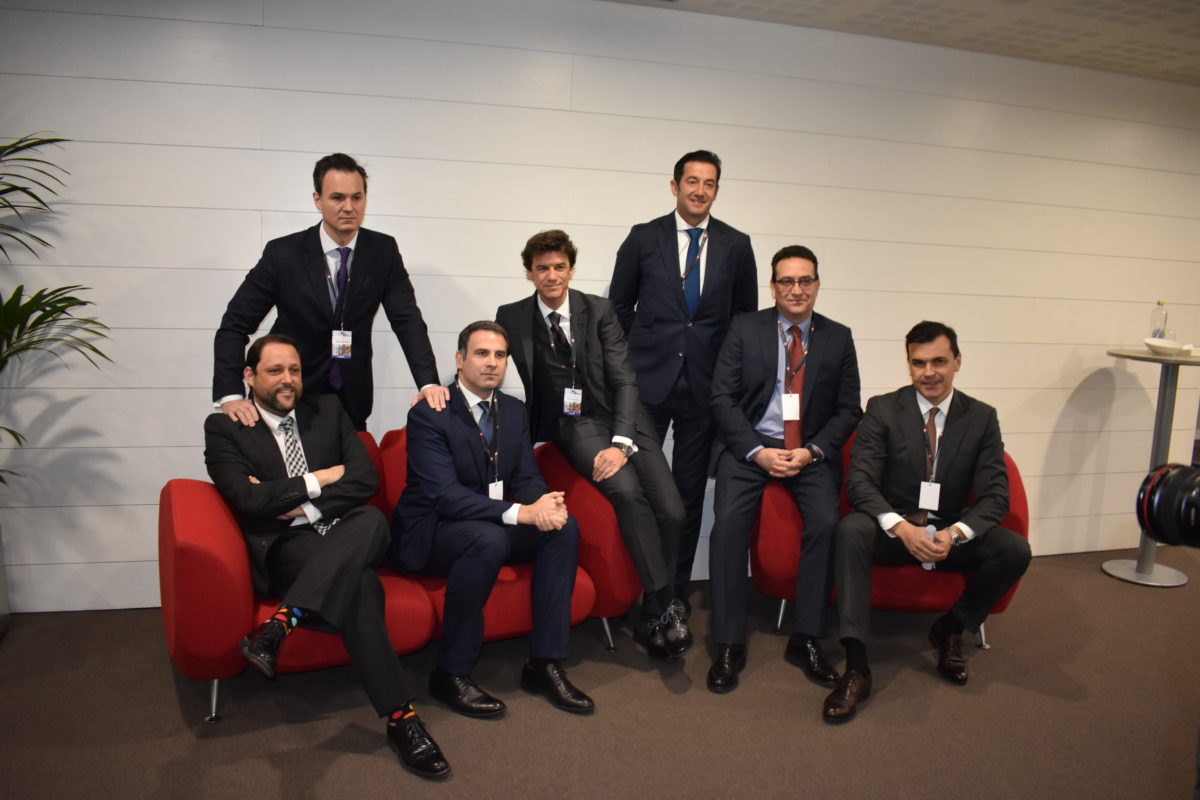
-
- Carlos Díez de la Lastra, General Manager of Les Roches Marbella, highlighted the fact that Bilbao is experiencing a sweet moment at a tourist level and the enormous attractions of the city as a destination, but it needs to be updated to reach the younger affluent client by focusing on experiential travel as a social currency.
-
- The hotelier panelists say they have to face the challenge of changing and transforming their facilities and services to meet the demands of the new generation.
-
- Bilbao needs to expand and enrich its range of tourism experiences to attract millennials.
-
- The meeting also highlighted the opportunity of working together with the Bilbao-Bizkaia brand to promote the tradition of the city as a business & leisure destination.
Hotel industry leaders from northern Spain, together with the General Manager of Les Roches Marbella, Carlos Díez de la Lastra, participated in Grupo Via‘s Grand Hotelier Debate in Bilbao on Wednesday, 11 April 2018. The panel of industry guests included, César Navarro, Vice President of the Destino Bilbao hotel association, Iñaki Etxeguren, General Director of Hotel Ercilla Bilbao, Alberto Gutiérrez, General Manager of Hotel Carlton, Igor Garmendia, Commercial Director of Abba Hotels (Northern Region), and José Luis Fernández Álvarez, Director of Barceló Hotels & Resorts (Northern Region).
The roundtable-style debate focused on the current transformation of Bilbao’s tourism industry and the new opportunities that are emerging in the North of Spain. According to Carlos Díez de la Lastra, moderator of the debate, “Bilbao is going through a very sweet moment, in a year that is especially important for the city. It has three very valuable axes for future tourists. First, it is located in a nerve center of the north of Spain with very good communications that allow you to cover numerous tourist and urban centers of the area within a two-hour drive. Second, Bilbao is the hub of business activity in the region, and in third, it is a city with a very rich cultural, economic, organizational level”.
Díez de la Lastra also talked about one of the most relevant trends in urban tourism, known as “Bleisure” (combining business with leisure travel). He mentioned that “58% [1] of business travelers often add a day or several days to their stay to discover the city on their own free time, while 67% admit to taking some time off to include these kinds trips. Bilbao has a tremendous opportunity here, and hoteliers are faced with the challenge of rethinking the experiences they can offer the business client by attracting them to the diverse leisure activities that make the city so attractive.”
César Navarro, vice president of the Destination Bilbao hotel association, for his part, agreed on this aspect and stressed that “Bilbao hotels are constantly evolving and hoteliers must be able to change and transform their facilities and services to meet the demands of these hybrid clients.” He also added that “working the Bilbao-Bizkaia brand together provides us with many attractions to offer tourists within 40 minutes of the city. A client can be at 12.00 in the morning visiting the Guggenheim and at 13.00 eating ‘pintxos’ in Lekeitio in the port. This is a spectacular feature that many destinations do not have and is an area we should promote”.
Social Networks, Technology, Millennials, and The Customer of Tomorrow
Despite the great attractions of the city and the important moment that Bilbao is experiencing, Carlos Díez de la Lastra stressed that “the city of Bilbao is a little outdated in its ability to appeal and attract tomorrow’s customer. It has to be updated to reach the youngest client. Millenials focus on experiential travel as a social currency and hoteliers must play a fundamental role in this aspect by being able to increase and enrich the range of experiences to attract millennials.”
Social networks oblige hotels to create new business models and they are transforming the tourism industry. This new generation is the customer of tomorrow, but they already represent a very important business niche, especially in urban destinations. In fact, more and more studies show that young people decide which hotel to go based on the possibilities of sharing attractive experiences in social networks. In this sense, Díez de la Lastra says that “the new tourist of the millennial generation wants to feel a part of the life of the hotel and the city they are visiting, to transmit that they are at the center of where things happen in order to share it, even though this interaction may not be real. The tangible part of the hotel and the comfort of the common spaces take a back seat in this new hotel model, and those who adapt their spaces to this new demand will achieve the greatest growth in the coming years.



